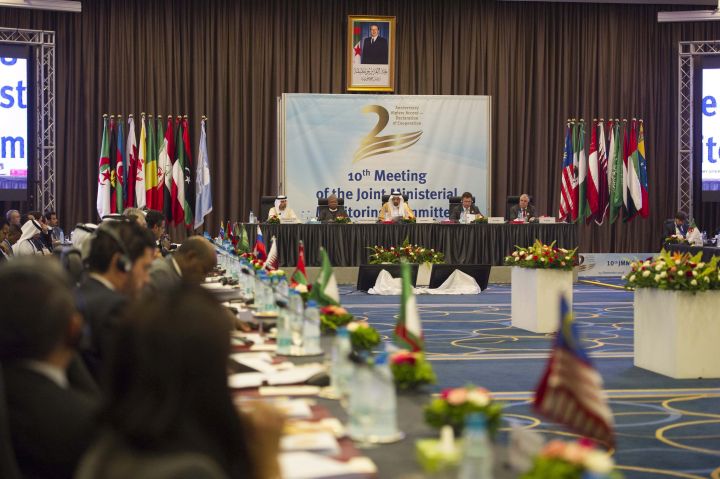A meeting of OPEC and its allies ended without any decision to further increase oil output despite U.S. President Donald Trump’s call for lower prices.

Members of the Organization of the Petroleum Exporting Countries met on Sunday in Algiers with non-members including Russia.
The committee said in a statement that it was satisfied “regarding the current oil market outlook, with an overall healthy balance between supply and demand.”
READ MORE: OPEC tries to boost oil prices by extending production cuts through 2018
It also urged “countries with spare capacity to work with customers to meet their demand during the remaining month of 2018.”
Trump has been calling publicly for OPEC to help lower prices by producing more.
“We protect the countries of the Middle East, they would not be safe for very long without us, and yet they continue to push for higher and higher oil prices!” he tweeted on Thursday.
The price rise is notably caused by a recent drop in Iran’s supply because of U.S. Sanctions.
READ MORE: Oil prices spike to highest level since 2014 after Trump exits Iran deal
Watch below: Some videos from Global News coverage of oil prices.
OPEC and Russia have capped production since January 2017 to bolster prices. Output fell below those targets this year, and in June the same countries agreed to boost the oil supply.
Saudi Arabia Energy Minister Khalid al-Falih told reporters that participating countries have provided over the last three months “a lot of supply to offset decreases” in Iran, Venezuela and Mexico. “Markets are quite balanced today, there’s plenty of supply to meet any customer that needs it.”
READ MORE: Alberta oilsands companies upbeat about future after Q2 results
Also Sunday, OPEC released its World Oil Outlook 2040 report.
The cartel says that China and India will drive growth in energy demand through 2040, and that oil will continue to remain the biggest source of energy despite a global push for cleaner resources. Oil demand is forecast to increase by 14.5 million barrels a day to a total of 111.7 million barrels in 2040, driven by an expanding middle class and economic growth in developing countries.
The U.S., which isn’t an OPEC member and has in recent years seen a renewed boom in shale oil, will continue to grow as a crude producer, peaking in the late 2020s. That suggests OPEC’s power to influence the market will be tempered by U.S. production for about another decade.










Comments